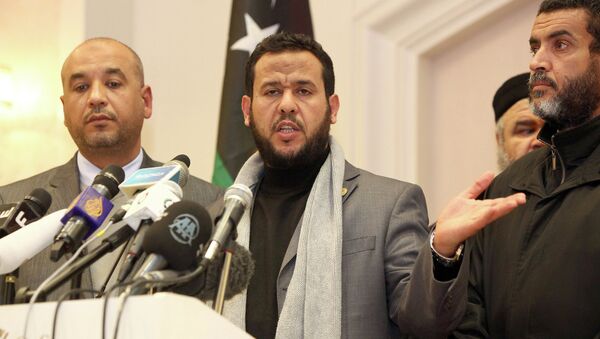The admission comes only days after its spy agency, GCHQ, was found to have breached the European Convention on Human Rights (ECHR).
According to human rights organisation Reprieve, Abdul-hakim Belhaj and Fatima Boudchar were tortured and rendered to Libya in 2004 in a joint MI6-CIA operation. They filed a case in 2013 with the UK Investigatory Powers Tribunal (IPT) concerning alleged eavesdropping by UK intelligence services on their confidential communications with their lawyers. That case is due to be heard in early March.
Govt concession on lawyer comms made in relation to case brought on behalf of rendition victim Abdul-Hakim Belhaj.
— Jamie Grierson (@JamieGrierson) February 18, 2015
Ahead of the hearing, a government spokesman said: "The concession the government has made today relates to the agencies' policies and procedures governing the handling of legally privileged communications and whether they are compatible with the European convention on human rights.
"In view of recent IPT judgments, we acknowledge that the policies adopted since [January] 2010 have not fully met the requirements of the ECHR, specifically article 8 (right to privacy). This includes a requirement that safeguards are made sufficiently public."
"Loopholes Big Enough to Drive a Bus Through"
The Investigatory Powers Tribunal (IPT), on February 6, 2015, found that prior to the disclosures made in a previous judgement of December 5, 2014, "the regime governing the soliciting, receiving, storing and transmitting by UK authorities of private communications of individuals located in the UK, which have been obtained by US authorities pursuant to PRISM and/or UPSTREAM [two US spying operations], contravened articles eight or ten [of the] ECHR".
Article eight refers to the right to respect for private and family life and article ten protects freedom of expression.
"For too long, the security services have been allowed to snoop on those bringing cases against them when they speak to their lawyers. In doing so, they have violated a right that is centuries old in British common law. Today they have finally admitted they have been acting unlawfully for years."
"While the government says there was no ‘deliberate' collection of material, it's abundantly clear that private material was collected and may well have been passed on to lawyers or ministers involved in the civil case brought by Abdul-hakim Belhaj and Fatima Boudchar, who were ‘rendered' to Libya in 2004 by British intelligence," Crider said.




